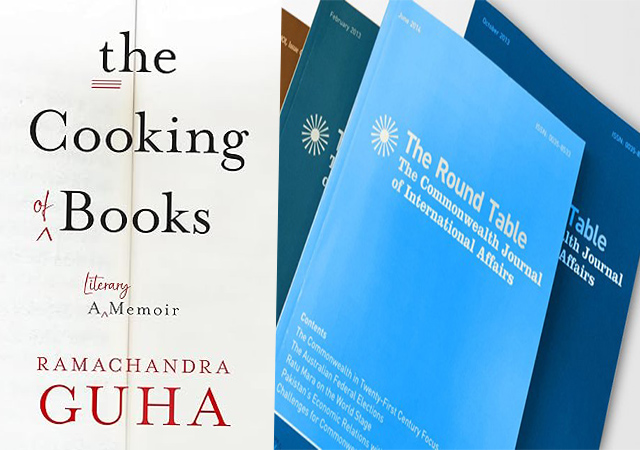
[This is an excerpt from an article in The Round Table: The Commonwealth Journal of Intnerational Affairs.]
The COVID-19 pandemic and associated lockdowns have accounted for a number of works which may otherwise not have seen the light of day. This slightly off-beat memoir by one of India’s prominent historians, Ramachandra Guha, is a case in point: it chronicles his four decades-long relationship with a talented, reclusive and occasionally waspish man of letters, Rukun Advani, who, as well as editing many of Guha’s acclaimed books, has also served as a confidant, literary adviser and sounding board through thick and thin. The memoir is at once entertaining, moving, informative and insightful.
For the most part, Guha’s interactions with Advani occur through correspondence – initially old-fashioned letters, later emails – and this is partly because they have lived hundreds of miles apart from each other within the vast country that is India and partly, one guesses, because of Advani’s eremitic disposition. Looked at from the reader’s point of view, this epistolary relationship is an inestimable blessing because it offers insights that other forms of communication are unlikely to match (imagine a book based on WhatsApp messages which, have, alas, been replacing even emails in recent years). The exchanges captured in the book abound in insightful analyses of current affairs, disagreements over politics, raillery, wit, sarcasm, and plain delightful banter.
Is the relationship an equal one? Possibly not. While it would perhaps be going too far to say that Guha is in thrall to his editor, he does appear to be in awe of him. Can they be said to be intimate friends? Only up to a point (Guha admits that when Advani and he were contemporaries in college, the latter had nothing but contempt for him – a state of affairs which only improved after Guha ‘rebooted’ himself a few years later by shedding his image as an ‘anti-intellectual sportsman’ and burnishing his academic credentials, including through the acquisition of a doctoral degree (pp. xii–xiii)). Discerning readers may be forgiven for detecting a smidgen of humblebrag peeping through the narration, though Guha’s skilful writing masks it fairly effectively. Both writer and subject, it needs to be remembered, are, by contemporary Indian standards, men of enormous privilege by virtue of education and upbringing.
Book reviews from The Round Table Journal
Commonwealth Bookshelf
Among the profound observations that litter the book, one which will strike a chord in many readers, especially those of a certain age, is that the world in which Guha and Advani grew up is truly a ‘vanished world’:
When Rukun and I first came together as editor and writer, the universe of books was a less visible and much less flamboyant place than it has since become. There were no literary festivals at which authors and publishers were compelled to talk up and sell not just their wares but their professional identities and their own importance within the book world … The thinking then was that just the making of a book – the very fact that a book had been conjured up and made to exist – was more important than selling it … In contemporary publishing, where the blaring of trumpets is among the most important aspects of the trade, this Olympian worldview is now likely to be seen as at best laughable and at worst contemptible. (pp. xv–xvi)
In that sense, the book is an ‘elegy to a lost world’, though hopefully not, as Guha fears, also ‘a self-indulgent celebration of elite male privilege’ (p. xx). It may be worth noting, en passant, that Guha himself has adjusted quite well to the new publishing landscape: he is a not infrequent presence at literary festivals and online platforms where his books are discussed and promoted.
There is much in the book that is instructive, especially to aspiring authors. Guha retells at considerable length the fascinating (but, arguably, to him frustrating) exchanges he had with his editor when putting together one of his early scholarly books, a biography of the British-Indian anthropologist and ethnologist Verrier Elwin, and the pains involved in ensuring that it came up to the exacting standards of Advani. The book, he recounts, had to go through some six drafts before it was finally considered fit for publication, with the editor being relentlessly unsparing in his criticisms, whether about Guha’s clunky prose, stylistic infelicities or more serious imperfections. Not for nothing is there high praise in the book for Advani’s ‘editorial genius’ (p. 191). ‘What makes Rukun Advani a great editor’, sums up Guha, ‘is that he understands language, and he understands thought’ – qualities which, Guha believes, stem from Advani’s early training in academic rigour while at Cambridge where he wrote a doctoral dissertation on E. M. Forster (p. 175).
Venkat Iyer is the Editor of The Round Table Journal.
The cooking of books: A literary memoir by Ramachandra Guha, New Delhi, Juggernaut Books, 2024.



